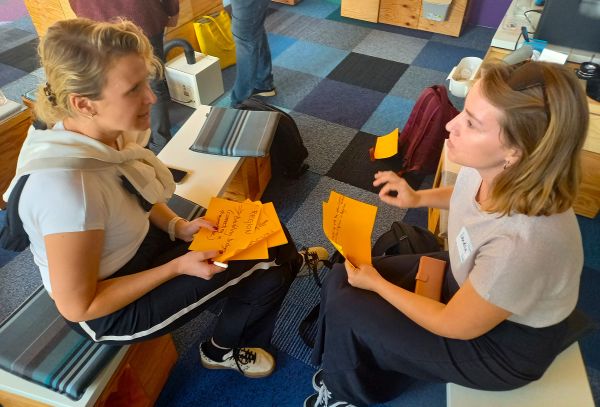What are soft skills?
“Soft skills are not just a value-add. They are a prerequisite for survival in the digital era.”
– Klaus Schwab, founder of the World Economic Forum
Soft skills appear under related concepts like human skills, social skills, 21st century skills and transversal skills. In the broadest sense, soft skills are non-technical skills that help people to overcome challenges and thrive in various contexts, including the work setting. (Jelena Jovičić 2024)
In x-Inno Radar, we focus on
- transversal skills such as problem-solving, critical thinking, creativity, communication, empathy and adaptability
- maker skills such as improvisation, inventiveness and iterative design thinking
- entrepreneurial skills such as initiative-taking, innovation, opportunity recognition, strategic thinking, risk-taking and networking
Soft skills in global industries
The World Economic Forum’s Future of Jobs 2025 report predicts that by 2030, nearly 40% of core workplace skills will have changed. Soft skills like analytical and creative thinking, resilience, flexibility and agility are topping the list. Yet 63% of employers identify skills gap as the main barrier to business transformation.
In the EU27, transversal skills already appear in 36.8% of all job ads (CEDEFOP 2023), even surpassing certain technical skills. Most in-demand soft skills include willingness to learn and team collaboration.
Central Europe’s double pressure: talent drain & skills mismatch
Eastern Slovakia illustrates the challenge. It faces a critical talent outflow. Around 1 in 5 graduates leave each year to find better opportunities abroad. Many who stay work in low value-added industries, limiting regional competitiveness.
Additionally, as well as in Central Europe in general, their educational systems prioritized technical knowledge for decades. Employers report a skill mismatch between graduates’ qualifications and needed skills like communication, teamwork and leadership.
Only 35% of employees receive regular soft skills training. Without urgent action, the gap will undermine the region’s ability to grow, innovate and attract talent. (Katarína Miňová 2024)
Soft skills in the age of AI
In the age of rapidly developing AI-powered automation, the human touch matters more than ever. Marco Dondi et al. (2021) shows that soft skills like self-confidence and coping with uncertainty are stronger predictors of employment and income and employability than many technical qualifications. These skills don’t depend on formal education. They grow through experience, cultural participation and targeted interventions. That’s where x-Inno Radar operates.
The x-Inno Radar approach
Ten partners across Central Europe teamed up on a fresh community-focused approach to boost regional soft skills development:
- Activating stakeholders to build broader support in the regions
- Mapping the regional landscape through digital screenings and expert focus groups
- Designing and testing eight innovative pilot projects with hands-on learning
- Evaluating and refining approaches into blueprints and regional strategies
- Sharing key findings with policymakers, business leaders, educators and support organizations across Europe.
Follow x-Inno Radar as we work to close skill gaps and build a more adaptable, competitive European industry.
